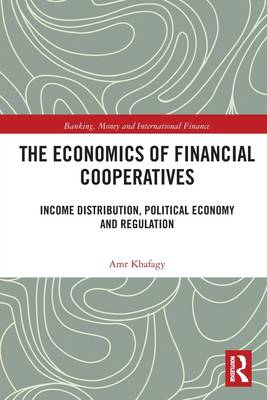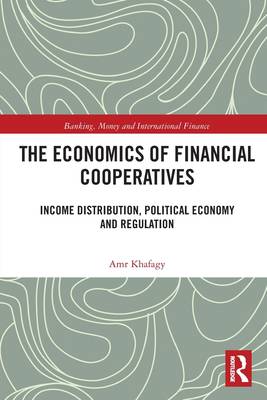
- Afhalen na 1 uur in een winkel met voorraad
- Gratis thuislevering in België vanaf € 30
- Ruim aanbod met 7 miljoen producten
- Afhalen na 1 uur in een winkel met voorraad
- Gratis thuislevering in België vanaf € 30
- Ruim aanbod met 7 miljoen producten
The Economics of Financial Cooperatives
Income Distribution, Political Economy and Regulation
Amr KhafagyOmschrijving
Building on theories of finance and distribution, and the political economy of finance, this book explains the influence of financial cooperatives on wealth and income distribution, and institutional factors that determine the development of financial cooperatives. The book discusses the dynamics of income and wealth distribution with and without financial cooperatives, and defines the economic objective for financial cooperatives. Through explaining the influence of political institutions and regulations on the development of financial cooperatives, this book examines why financial cooperatives grew in some emerging economies and not in other similar ones.
The book is of interest to scholars interested in financial economics, political economy of finance, alternative banking and development finance, and banking regulation. The book also gives valuable output to central bankers and financial and monetary policy makers in underdeveloped economies. In addition, it will be of particular interest to practitioners in international development institutions, especially those engaged in development finance and rural finance.
Specificaties
Betrokkenen
- Auteur(s):
- Uitgeverij:
Inhoud
- Aantal bladzijden:
- 180
- Taal:
- Engels
- Reeks:
Eigenschappen
- Productcode (EAN):
- 9780367777517
- Verschijningsdatum:
- 1/04/2021
- Uitvoering:
- Paperback
- Formaat:
- Trade paperback (VS)
- Afmetingen:
- 156 mm x 234 mm
- Gewicht:
- 285 g

Alleen bij Standaard Boekhandel
Beoordelingen
We publiceren alleen reviews die voldoen aan de voorwaarden voor reviews. Bekijk onze voorwaarden voor reviews.











